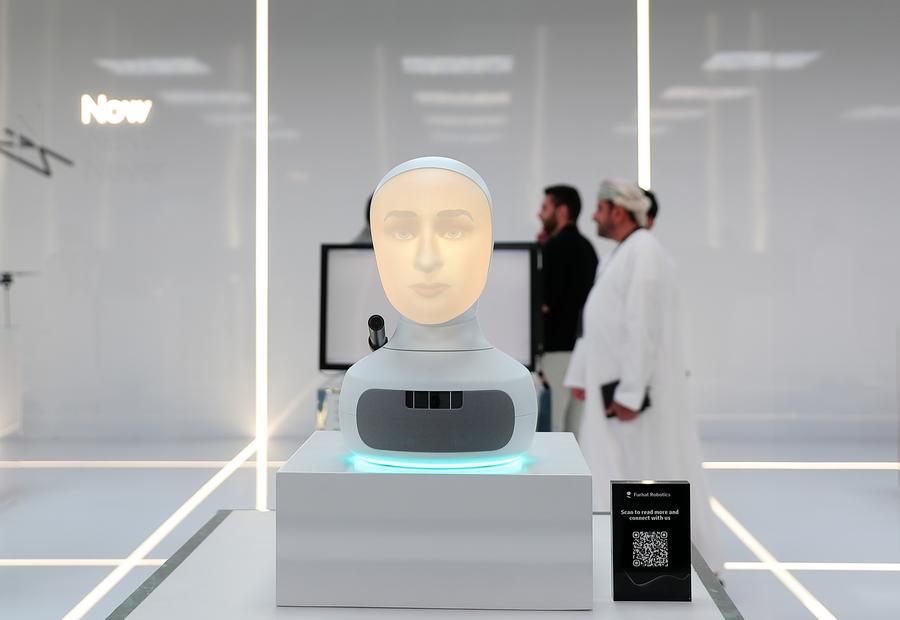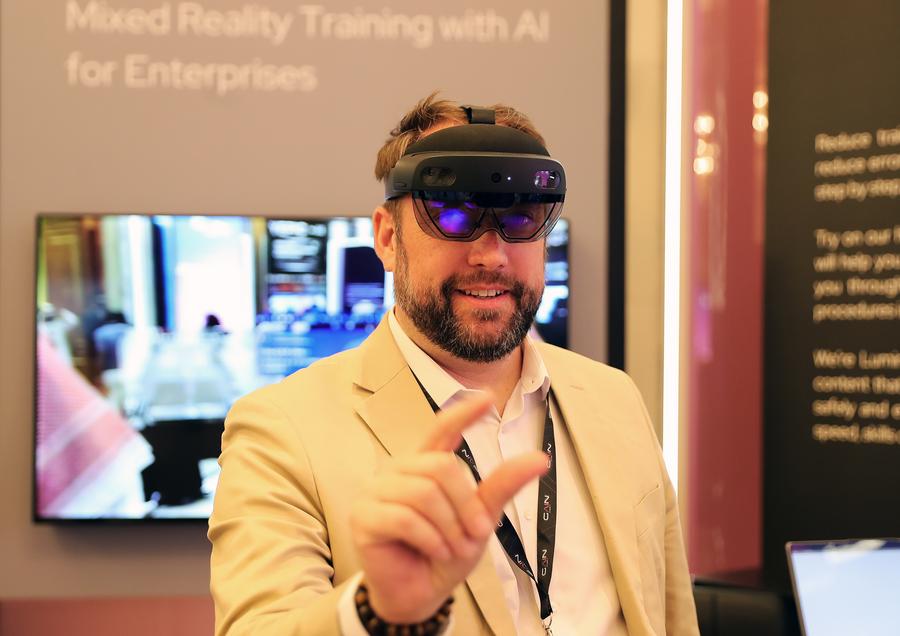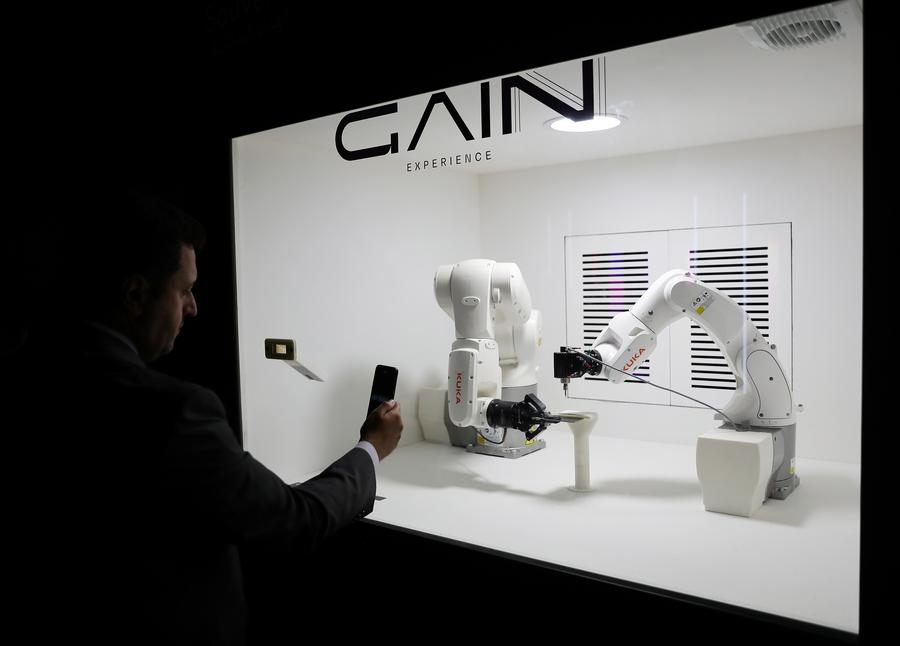
RIYADH, Sept. 13 (Xinhua) -- An agile robotic dog greeted passersby with various movements; virtual reality-driven equipment assisted companies in achieving low-cost skills training, and a mobile music app composed in real-time through intelligent data analysis -- the third edition of Global Artificial Intelligence (AI) Summit held in the Saudi capital Riyadh has offered a glimpse of the future of AI.
Running from Tuesday to Thursday, the summit saw AI companies worldwide showcase their latest advancements, highlighting the remarkable speed of AI development and the increasing prevalence of its applications in various scenarios.
At the booth of a British AI company called Luminous XR, staff members were guiding visitors to virtual and mixed-reality training at a table equipped with tools like wrenches and pliers.
Users wore headsets and manipulated the tools in the air to engage in training across various virtual scenarios. Ben Bennett, CEO of Luminous XR, said this system is currently used to train the company's local workforce in Saudi Arabia.

At the booth of Germany's Siemens, a human-machine conversation was taking place. "Are you functioning well right now?" A technician asked. "I'm doing great, operating normally," an AI-driven machine replied.
According to the booth staff, this human-machine interaction system could be utilized with any machine equipped with a programmable logic controller, allowing users to check machine status as casually as having a conversation, without physical operations or code inputs.
During the summit, the vast potential of AI technology for improving the life of humanity is evident.
几年前,吴谷一辞去工作后,开启了她多年的“环游中国旅行”。2024年,吴谷一34岁,这一年也是她第六次进藏。受电影《冈仁波齐》影响,吴谷一通过拍短视频,把自己在西藏旅行和拾捡垃圾的过程放在互联网上,以个人的力量在旷野和山脉间呼唤环保与自然。2024年12月14日,吴谷一捡拾垃圾的足迹已抵达青海西宁。
查尔斯·巴克利不喜欢他从前球队身上看到的一切。

However, company representatives told Xinhua that most companies have concentrated mainly on European and North American markets, making AI services seem quite far off for many developing countries, particularly those struggling financially.
According to Deemah Al-Yahya, secretary-general of the Digital Cooperation Organization based in Riyadh, AI projects require significant amounts of energy. Addressing the energy constraints that hinder AI development poses a challenge even for developed countries, let alone for impoverished nations that cannot reliably secure their daily electricity supply, she noted.
"The uneven digital landscape threatens to create an AI divide further magnified by the existing digital divide, leading to a new form of exclusion... We need cooperative actions to ensure AI bridges these divides rather than making them worse," she said.
"We need global coordination to build safe and inclusive AI that is accessible to all," UN Secretary-General Antonio Guterres previously appealed, echoing a similar sentiment.

On July 1, the 78th UN General Assembly reached a historic consensus by adopting a resolution spearheaded by China on enhancing international cooperation for AI capacity building, with over 140 countries saying yes.
This resolution outlines a series of practical measures to strengthen international collaboration, intending to help all countries, especially developing ones, benefit equally from AI development, bridge the digital divide, improve global AI governance, and accelerate the fulfillment of the UN's 2030 Agenda for Sustainable Development.
As Vilas Dhar, president and trustee of Patrick J. McGovern Foundation, a nonprofit focused on AI, has said澳门六合彩官网, "The future of AI should belong to all humanity."■
